For aspiring superheroes, gravity might seem like the enemy holding them down. But in reality, gravity is the force that keeps life on Earth safe and stable. If gravity suddenly disappeared, Earth would face an unimaginable apocalypse, disintegrating as it got sucked into the vacuum of space—an outcome experts have described to FOXWeather.
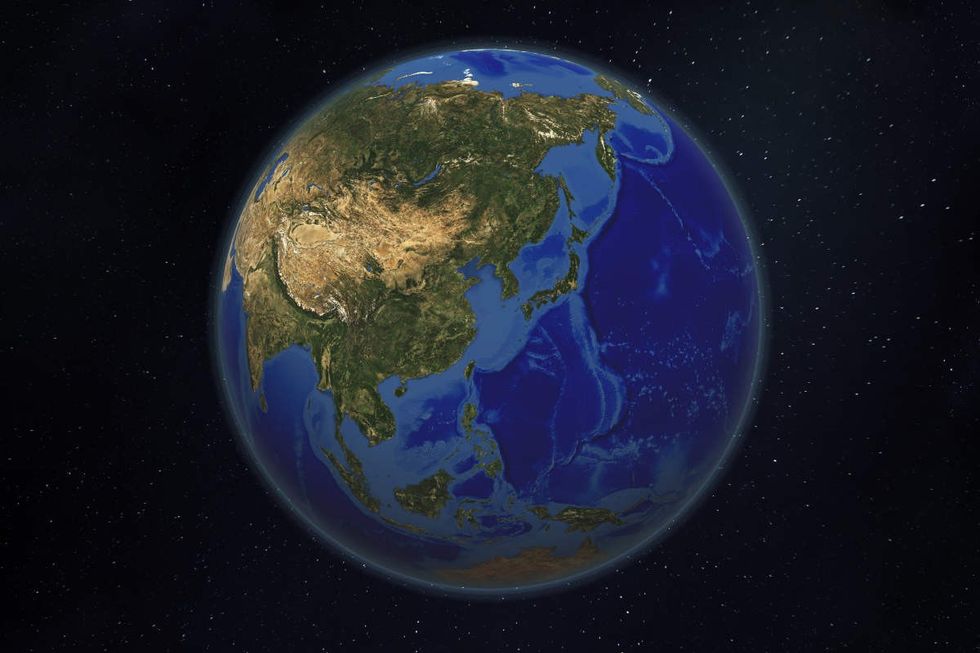
Gravity functions like an invisible force field around Earth, pulling everything toward its center. From tiny pebbles to towering skyscrapers, gravity holds everything in place. According to NASA, “gravity” is the force by which Earth draws objects toward its center. The force of gravity keeps the planet intact in orbit around the sun. Gravity glows like an invisible magnetic field around Earth that pulls everything in its orbit toward itself. From the tiniest of pebbles lying on the ground to towering skyscrapers that stand tall and proud, it’s all because of gravity.
Gravity is the powerful force that holds everything together—the air we breathe, the water in the oceans, and the clouds in the sky. If gravity stopped, even for a second, it would trigger catastrophic chaos. In terms of physics, the disorder is referred to as “entropy.” Gravity helps to sustain the appropriate amount of entropy. But, according to the second law of thermodynamics, the entropy of an isolated system that is not in equilibrium, will tend to increase with time. And loss of gravity would also steal away the equilibrium of the planet as well as the entire solar system, thereby, prompting a cascade of entropy aggravation.
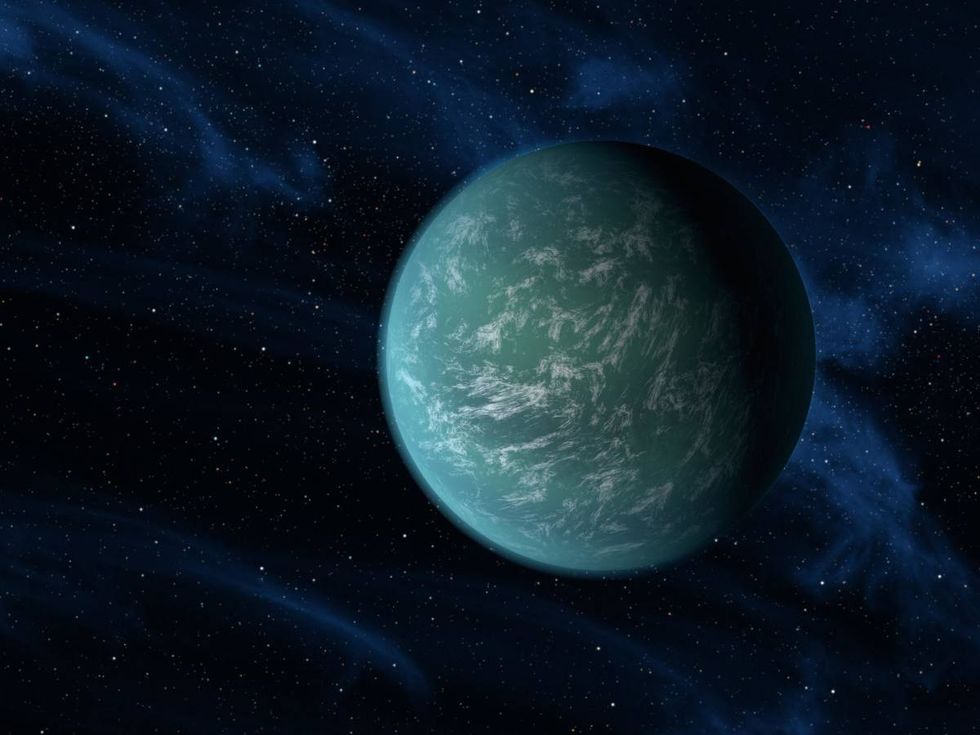
"The first thing you would notice would be the feeling that you're falling instantly," Philip Metzger, a planetary scientist at the University of Central Florida, told FOXWeather. "Everybody all over the world would feel like they're falling, even though they're not going to be falling. They're actually going to be rising off the surface of the Earth."
"You would feel like you were in a rollercoaster going down that first hill or in an elevator that suddenly drops because we're used to the feeling of gravity pulling all our blood and pulling our organs downward. And suddenly that would vanish," he added and further explained that the disconnect between the body and mind would trigger something that astronauts experience in space: puking. "The reason you throw up is because your body knows something is wrong," said Metzger. "A lot of people get sick in these reduced-gravity flights. And so, the old NASA aircraft, they called it the ‘vomit comet’ because a lot of people would throw up."

JAXA explains that when astronauts go into space, their bodies experience “space sickness,” which, as Metzger said, includes symptoms like headaches, nausea, and vomiting. Besides, since gravity helps to keep human bodies balanced, loss of gravity disturbs the balance of the body. Astronauts’ stomachs become bloated and their faces become swollen and puffy. Additionally, blood and other bodily fluids are also pulled upwards by the force of gravity. So when gravity is lost, bodily fluids start accumulating in the upper body, triggering several problems related to eyesight, bone density, and muscle mass. Many astronauts, when returning to Earth have difficulty in walking, standing, and regular movement.
Apart from environmental disorder and body imbalance, gravity would also cause the water in watercourses to rise towards the sky. "If gravity were to suddenly turn off, then all the water in the world would start to rise off the surface of the Earth," explained Metzger. All the water will be swept into the space. Soon enough, another problem would arise.
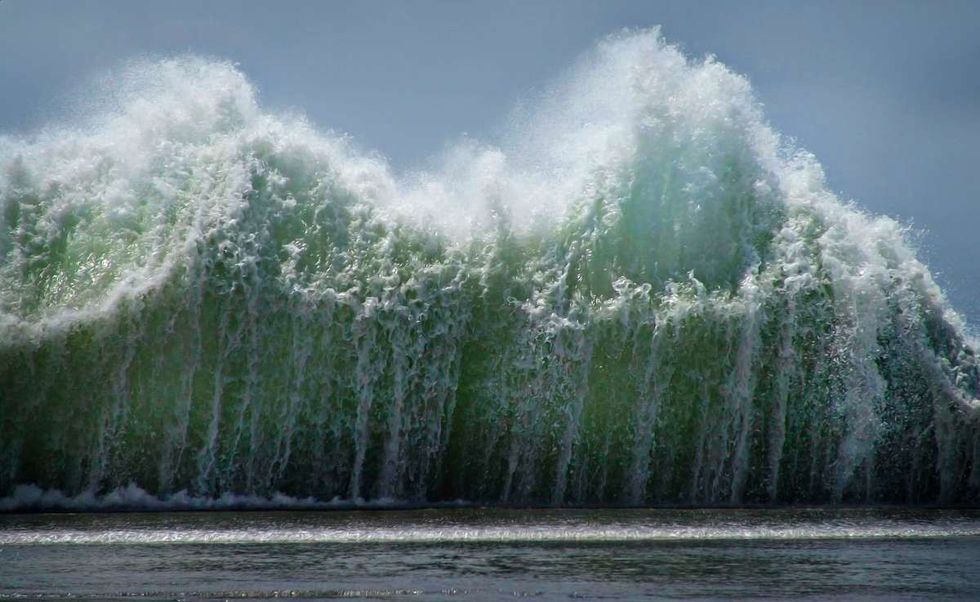
The atmosphere would start becoming thinner and thinner, said Metzger. "The air would be getting thinner and thinner, almost immediately," said Metzger. "You would feel the air sucked out of your lungs. Your ears would pop like you've gone up to a high mountain." A YouTube video furthers this phenomenon by explaining that all the atmospheric gases would get flung into space, out of Earth. So the pressure on Earth would begin to increase, which would tune out the humans’ inner ear, and eventually, all would lose consciousness. Metzger elaborated, "Within a rather short amount of time, the air pressure would become so low that we would lose consciousness."
Humans will vanish but the Earth itself would not spared either. Metzger said that the entire Earth would rip apart. "Earth is held into a round shape by gravity and the crust of the earth. These crustal plates are held down by gravity. So if the gravity disappeared, then as the Earth is rotating, those crustal plates would begin lifting off of the mantle of the Earth, and they would begin flying out into space as well."
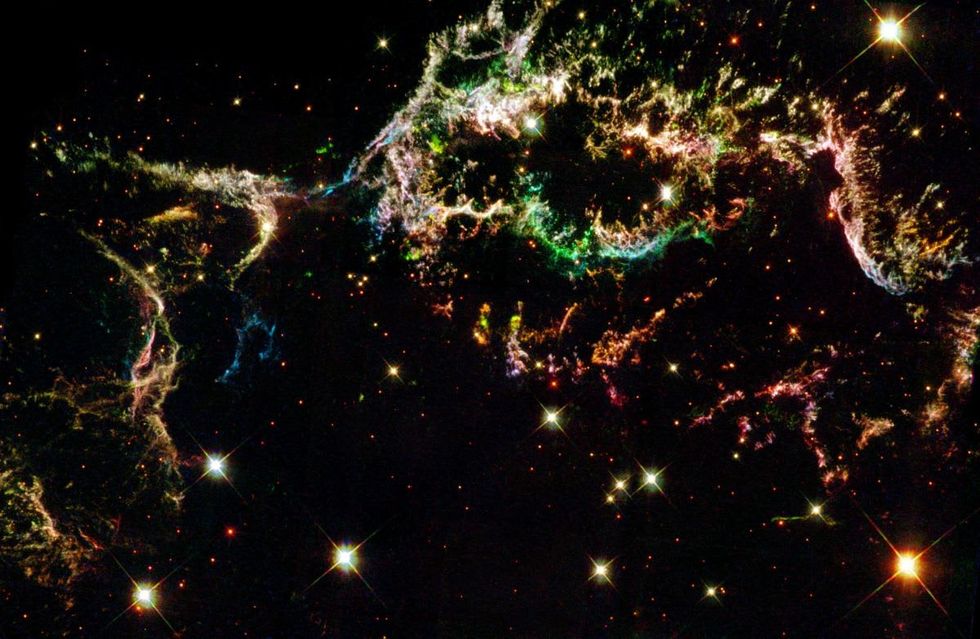
Given all these horrifying facts, the point of relief is that Earth is not going to lose its gravitational field anytime soon, and as for now, a gravityless planet is only a matter of science fiction. "It would be something that would be far bizarrely beyond everything we've known about physics," said Metzger. "But for fun, you know, you could imagine these things".


















 A parking lot for charging electric vehicles.Photo credit
A parking lot for charging electric vehicles.Photo credit 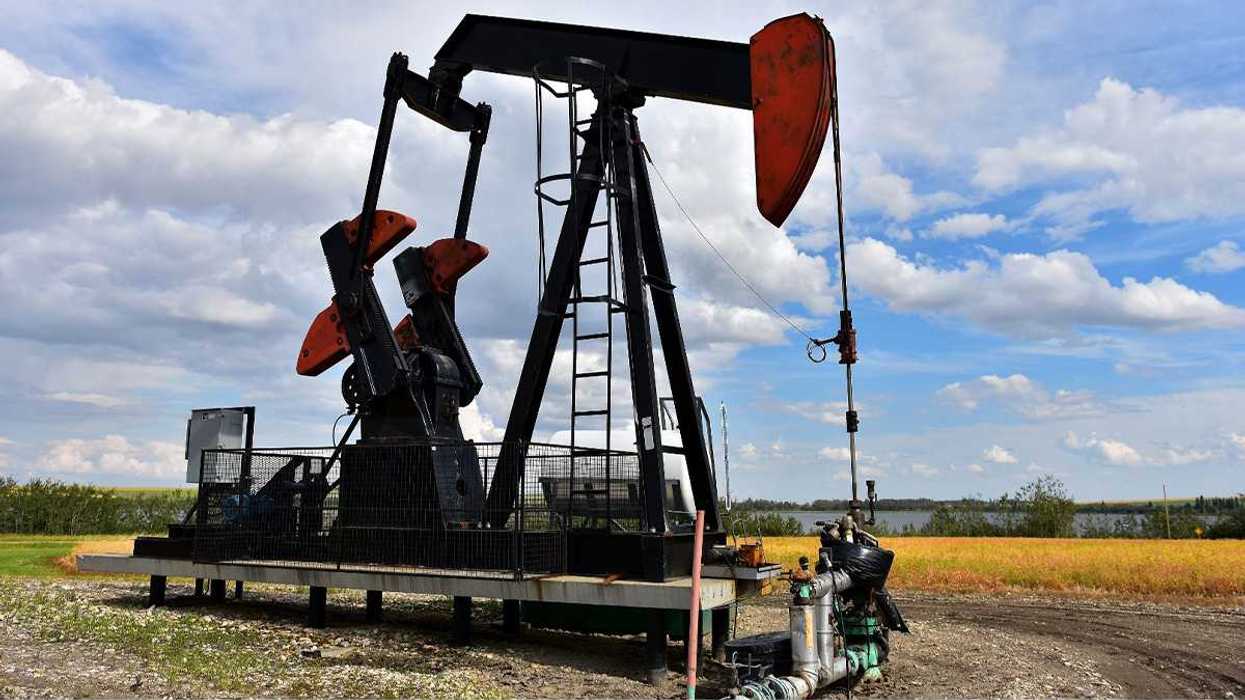 Oil production.Photo credit
Oil production.Photo credit 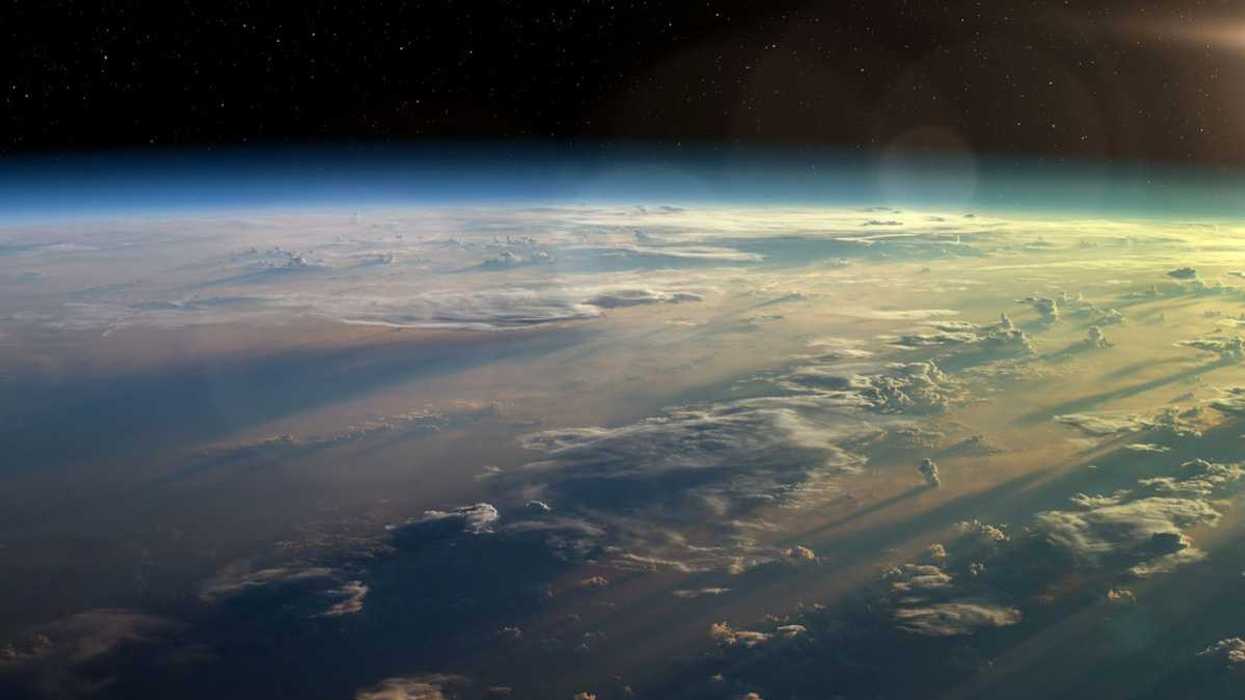 Sun shines over the Earth.Photo credit
Sun shines over the Earth.Photo credit 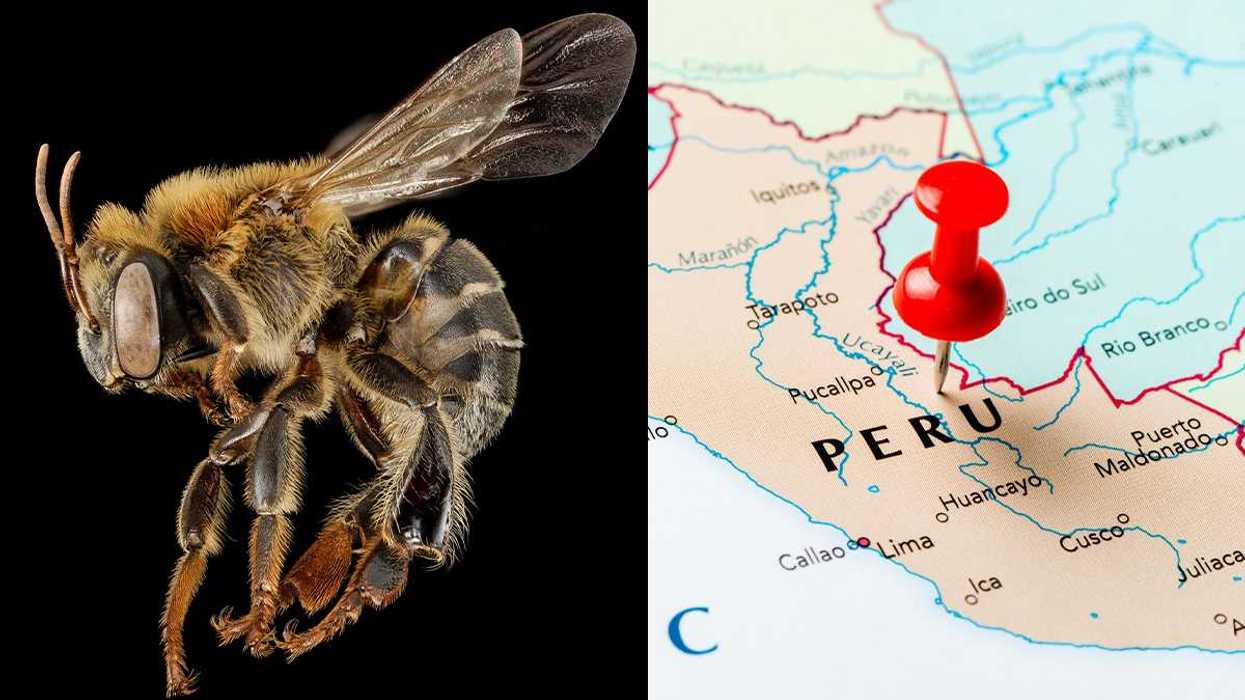
 Peru stingless bee.USGS Bee Inventory and Monitoring Lab/
Peru stingless bee.USGS Bee Inventory and Monitoring Lab/  Indigenous Peruvian people.Photo credit
Indigenous Peruvian people.Photo credit 
 Representative Image: Accents reveal heritage and history.
Representative Image: Accents reveal heritage and history.  Representative Image: Even unseen you can learn a lot from an accent.
Representative Image: Even unseen you can learn a lot from an accent. 

 Rice grain and white rice.Image via
Rice grain and white rice.Image via  Person eats rice.Image via
Person eats rice.Image via  Washing and rinsing rice.
Washing and rinsing rice.  Mother and daughter eating rice meal.Image via
Mother and daughter eating rice meal.Image via 

 Bees feeding on food source.Image via
Bees feeding on food source.Image via
President Donald J. Trump and photo of a forest.
Public united and adamantly opposes Trump’s plan to roll back the Roadless Rule
There doesn't seem to be much agreement happening in the U.S. right now. Differing moral belief systems, economic disparity, and political divide have made a country with so many positives sometimes feel a little lost. Everyone desperately seeks a niche, a connection, or a strong sense of community to which they can feel a "part of," rather than just "apart."
But there seems to be one thing that the country strongly unites over, and that's the "Roadless Rule." With the Trump Administration attempting to roll back conservation policies that protect U.S. National Forests, Americans are saying in harmony an emphatic "No." A nonpartisan conservation and advocacy organization, the Center for Western Priorities, reviewed a comment analysis on the subject. After receiving 223,862 submissions, a staggering 99 percent are opposed to the president's plan of repeal.
What is the 'Roadless Rule' policy implemented in 2001?
The Roadless Rule has a direct impact on nearly 60 million acres of national forests and grasslands. According to the U.S. Department of Agriculture, the rule prohibits road construction and timber harvests. Enacted in 2001, it is a conservation rule that protects some of the least developed portions of our forests. It's considered to be one of the most important conservation wins in U.S. history.
America's national forests and grasslands are diverse ecosystems, timeless landscapes, and living treasures. They sustain the country with clean water and the wood products necessary to build our communities. The National Parks protected under their umbrella offer incredible recreational retreats and outdoor adventure.
Why does the administration want to roll it back?
U.S. Secretary of Agriculture Brooke L. Rollins told the Department of Agriculture in a 2025 press release, “We are one step closer to common sense management of our national forest lands. Today marks a critical step forward in President Trump’s commitment to restoring local decision-making to federal land managers to empower them to do what’s necessary to protect America’s forests and communities from devastating destruction from fires." Rollins continued, “This administration is dedicated to removing burdensome, outdated, one-size-fits-all regulations that not only put people and livelihoods at risk but also stifle economic growth in rural America. It is vital that we properly manage our federal lands to create healthy, resilient, and productive forests for generations to come. We look forward to hearing directly from the people and communities we serve as we work together to implement productive and commonsense policy for forest land management.”
Forest Service Chief Tom Schultz explained the Roadless Rule frustrated land management and acts as a challenging barrier to action. It prohibits road construction needed to navigate wildfire suppression and properly maintain the forest. Schultz said, “The forests we know today are not the same as the forests of 2001. They are dangerously overstocked and increasingly threatened by drought, mortality, insect-borne disease, and wildfire. It’s time to return land management decisions where they belong – with local Forest Service experts who best understand their forests and communities."
Why are people adamantly opposed to the proposed rollback?
A 2025 article in Earthjustice, a nonprofit environmental law organization, expressed its concern over the protection of national forests covering 36 states and Puerto Rico. A rescinded rule allows increased logging, extractive development, and oil and gas drilling in previously undisturbed backcountry. Here is what some community leaders had to say about it:
President Gloria Burns, Ketchikan Indian Community, said, "You cannot separate us from the land. We depend on Congress to update the outdated and predatory, antiquated laws that allow other countries and outside sources to extract our resource wealth. This is an attack on Tribes and our people who depend on the land to eat. The federal government must act and provide us the safeguards we need or leave our home roadless. We are not willing to risk the destruction of our homelands when no effort has been made to ensure our future is the one our ancestors envisioned for us. Without our lungs (the Tongass) we cannot breathe life into our future generations.”
Linda Behnken, executive director of the Alaska Longline Fishermen’s Association, stated, "Roadbuilding damaged salmon streams in the past — with 240 miles of salmon habitat still blocked by failed road culverts. The Roadless Rule protects our fishing economy and more than 10,000 jobs provided by commercial fishing in Southeast Alaska.”
The Sierra Club's Forest Campaign Manager Alex Craven seemed quite upset, saying, "The Forest Service followed sound science, economic common sense, and overwhelming public support when they adopted such an important and visionary policy more than 20 years ago. Donald Trump is making it crystal clear he is willing to pollute our clean air and drinking water, destroy prized habitat for species, and even increase the risk of devastating wildfires, if it means padding the bottom lines of timber and mining companies.”
The 2025 recession proposal would apply to nearly 45 million acres of the national forests. With so many people writing in opposition to the consensus, the public has determined they don't want it to happen.
Tongass National Forest is at the center of the Trump administration's intention to roll back the 2001 Roadless Rule. You can watch an Alaska Nature Documentary about the wild salmon of Tongass National Forrest here:
- YouTube www.youtube.com
The simple truth is we elect our public officials to make decisions. The hope is they do this for all of our well-being, although often it seems they do not. Even though we don't have much power to control what government officials do, voicing our opinions strongly enough often forces them to alter their present course of action. With a unanimous public voice saying, "No!" maybe this time they will course correct as the public wishes.